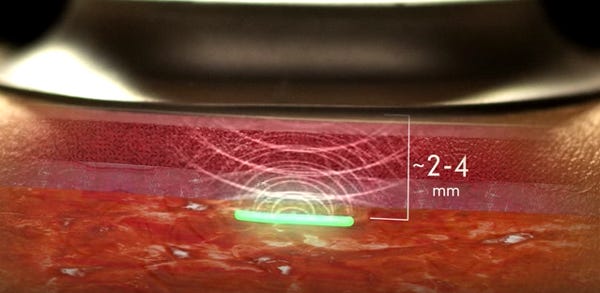DARPA Awards $7.5 Million for Implantable Biosensor Tech
July 12, 2016
The grant will aid Profusa in further development of its implantable biosensors for continuous monitoring of multiple body chemistries.
Qmed Staff

Profusa (South San Francisco, CA) has won a $7.5 million grant from the Defense Advanced Research Projects Agency (DARPA) and the U.S. Army Research Office for further development of its tissue integrated biosensor technology, the company said Tuesday.
The U.S. military sees value in the technology improving mission efficiency through real-time monitoring of combat soldier health status.
"Profusa's vision is to replace a point-in-time chemistry panel that measures multiple biomarkers, such as oxygen, glucose, lactate, urea, and ions with a biosensor that provides a continuous stream of wireless data," Ben Hwang, PhD, Profusa's chairman and CEO, said in a news release.
Profusa's biosensors seek to overcome foreign body response by fully integrating within the body's tissue--without any metal device or electronics. The sensors are made of a bioengineered "smart hydrogel" that is similar to contact lens material, forming a porous, tissue-integrating scaffold. When exposed to light, the hydrogel is able to luminesce in proportion to the concentration of a specific chemical--oxygen, glucose, or another biomarker.
The biosensors are each only between 2 mm to 5 mm long and 200 to 500 microns in diameter. They are placed under the skin with a specially designed injector.
Profusa's first product, its Lumee sensor for measuring oxygen, is slated to debut in Europe this year, pending CE Mark.
Check out this video explaining Profusa's technology:
Chris Newmarker is senior editor of Qmed. Follow him on Twitter at @newmarker.
Like what you're reading? Subscribe to our daily e-newsletter.
About the Author(s)
You May Also Like

.png?width=300&auto=webp&quality=80&disable=upscale)
